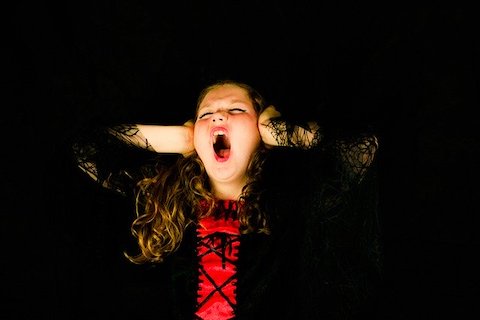Consequences of Authoritarian Parenting
By Dr. Margaret PaulDecember 31, 2006
Do you find yourself in power struggles with your children? Discover how trying to control your children can lead to resistance and rebellion.
 Do you believe that it is your job as a parent to have control over your children? Do you find yourself trying to control your children in the ways your parents tried to control you, or in the ways you learned from siblings, friends or relatives? Do you hope that through yelling, threatening, shaming, blaming, judging, demanding, spanking, nagging, lecturing, explaining, arguing, and so on, you will get them to do what you want them to do? Is it working?
Do you believe that it is your job as a parent to have control over your children? Do you find yourself trying to control your children in the ways your parents tried to control you, or in the ways you learned from siblings, friends or relatives? Do you hope that through yelling, threatening, shaming, blaming, judging, demanding, spanking, nagging, lecturing, explaining, arguing, and so on, you will get them to do what you want them to do? Is it working?
Most of us do not like to be controlled, and children are no exception. While they may comply in certain areas to avoid punishment, they will likely resist in other areas.
Possible Negative Consequences to Your Child of Attempting to Control Him or Her
Your choice to control may have numerous negative consequences for your children. It is important to connect your controlling behavior with the consequences that may result. While controlling might work in the short run, it can create many problems in the long run.
What are the problems you are having?
- My child and I get into power struggles.
- My child does what I want most of the time but becomes resistant in certain areas. My child resists:
Taking a bath or shower
Brushing teeth
Going to bed
Doing homework
Getting ready for school
Learning
Going to school
Reading
Keeping his or room clean
Doing chores
Telling the truth
Dressing appropriately for school
Using appropriate language
Looking nice
Being kind and considerate
Being on time
Talking with me
Having my values
Eating well
Calling when he or she is going to be late
Caring about what is important to me
Being loving to me
Listening to me
Getting a job
Caring about his or her health. Instead, he or she:
SmokesCaring about his or her safety. Instead, he or she:
Drinks alcohol
Smokes pot
Uses drugs
Eats junk
Rides a motorcycle without a helmet
Drinks or uses drugs and drives
Drives recklessly
Has unprotected sex
Walks in dangerous areas
- My child never does what I ask. He or she is always resistant.
- My child suffers from low self-esteem.
- My child is depressed.
- My child feels unloved.
- My child is bossy with other kids.
- My child is tense, anxious, angry and/or unhappy.
- My child beats up on younger kids.
- My child does not take personal responsibility.
Possible Negative Consequences to You of Trying to Control Your Child
Your controlling behavior may also have negative consequences for you, especially in the long run.
What are the consequences for you?
- Parenting is not fun. It feels like a burden.
- I feel resentful toward my child.
- I am tired of the power struggles.
- I feel tense, anxious, angry or frustrated.
- I feel like a failure as a parent.
- My child and I do not have fun together.
- I feel rageful and out of control.
- I feel overwhelmed.
Parenting can become a wonderfully fulfilling experience when you learn to parent as a loving and respectful adult rather than from the fear and insecurity that underlies controlling behavior.
The secret of letting go of controlling parenting is to learn what it means to be kind to yourself. If your focus is on being kind to your children but not to yourself, you will likely become a permissive parent, which has just as many negative consequences as controlling parenting. When you focus on being kind to yourself, you naturally refuse to tolerate unkind behavior from your children. However, instead of trying to control your children, you learn to take loving care of yourself. By practicing Inner Bonding and learning to take loving action on your own behalf and setting logical consequences for your children's unacceptable behavior, your children will learn to take personal responsibility far more quickly than when you attempt to force it on them.
Join Dr. Margaret Paul for her 30-Day at-home Course: "Love Yourself: An Inner Bonding Experience to Heal Anxiety, Depression, Shame, Addictions and Relationships."
Join IBVillage to connect with others and receive compassionate help and support for learning to love yourself.
 Send this article to a friend
Send this article to a friend  Print this article
Print this article  Bookmarked 0 time(s)
Bookmarked 0 time(s)
Comments
| Author | Comment | Date |
|---|---|---|
| Join the Inner Bonding Community to add your comment to articles and see the comments of others... | ||

Daily Inspiration
How often do you tell yourself that what you want and feel and need is not important? How often do you make others' wants and feelings and needs more important than your own? How often do you notice that you are feeling angry and resentful as a result? This is your inner child angry at you for not loving him or her. Today, notice this without judgment, with a compassionate intent to learn.
By Dr. Margaret Paul

 Share with Del.icio.us
Share with Del.icio.us Share with Digg
Share with Digg







